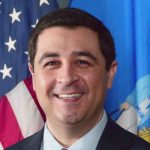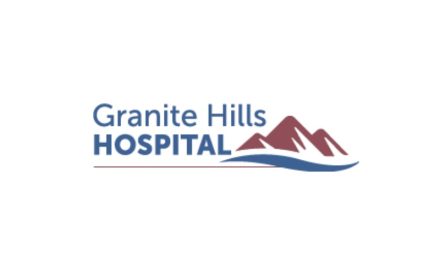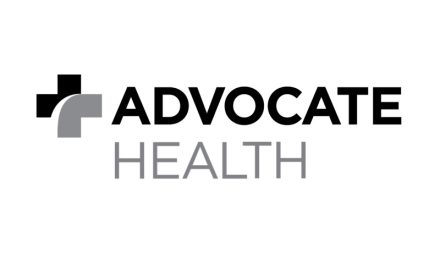
Governor Walker announces Fast Forward worker training grants covering healthcare
Altoona – Governor Scott Walker joined Department of Workforce Development (DWD) Secretary Ray Allen at Grace Lutheran Communities – River Pines today to launch the application period for up to $3 million in Wisconsin Fast Forward (WFF) worker training grants for health science, health care, and related occupations.
“Targeted investments in training for new and existing health care workers will develop the highly-skilled, dependable workforce Wisconsin is known for,” Governor Walker said. “Developing our workforce to deliver high-quality care throughout the state is very important as this sector continues to be a leader in Wisconsin’s economy and nationally.”
In February 2017, 397,600 people were employed in health care in Wisconsin. Since December 2010, 38,900 new Wisconsin health care jobs have been created. Hospitals throughout the state employ over 107,000 individuals.
The DWD Office of Skills Development (OSD) set the Health Science, Health Care and Related Occupations Grant Program Announcement (GPA) based on a comprehensive analysis of pressing workforce needs that included skilled worker labor market employment projections and the immediate worker training needs of employers.
“Current vacancy rates for health care employees, combined with expected growth in the sector make the availability of these grants imperative,” said Secretary Allen. “The Wisconsin Fast Forward program will produce health care job candidates who have the skills that are in demand by employers today and into the future.”
Governor Walker’s Wisconsin Fast Forward program was approved with overwhelming bipartisan support in 2013. Its mission is to train and retain highly skilled Wisconsin workers. To date, DWD has awarded more than $18 million in WFF grant contracts, supporting approximately 200 worker training projects that benefit hundreds of businesses and thousands of trainees across the state.
The OSD has developed an effective process that enables businesses to easily apply for grants, ensuring that unemployed trainees are hired and incumbent trainees receive a pay raise. GPA details follow:
- Application Deadline: May 1, 2017 at 11:59 p.m.
- Individual Award Amount: $5,000 to $400,000
- Grantee Match: $1 for every grant $1 requested
Governor Walker’s 2017-2019 Biennial Budget also supports Wisconsin’s healthcare industry and professionals through the following provisions:
- Nursing Home Rate Increase. The Governor’s budget supports the nursing home direct care workforce by providing a 2 percent increase in fiscal year 2017-18 of $18,354,900 and a 2 percent increase in fiscal year 2018-19 of $33,118,900 to support nursing home direct care workforce and increased resident acuity in nursing homes, intermediate care facilities for individuals with intellectual disabilities and for enhanced behavioral and cognitive impairment incentives.
- Personal Care Rate Increase. The Governor’s budget supports Personal Care program direct care workforce by providing a 2 percent increase of $5,034,300 in fiscal year 2017-18 and a 2 percent increase of $9,936,300 in fiscal year 2018-19 to address increased program participant acuity.
- Wisconsin is currently experiencing a crisis-level shortage of direct care workers that is leaving families without options and people with disabilities and older adults without needed care. Direct care workers help people get out of bed, use the bathroom, get dressed, prepare meals, travel to and from work or school and other activities necessary for daily living.
- More than 85% of Wisconsinites who rely on direct care workers for some or all of their support needs say they cannot find enough workers. As a result, people with disabilities and older adults are going without needed assistance—putting them in danger of serious illness, harm and a loss of independence.
- Provider agencies, struggling to keep their doors open, are reporting turnover rates as high as 67% because they cannot increase workers’ wages.
- Wisconsin Rural Physician Residency Assistance Program. The Wisconsin Rural Physician Residency Assistance Program (WRPRAP) was created by 2009 Wisconsin Act 190 to expand access to physicians and other medical workers in rural Wisconsin. The program provides financial support to rural hospitals, residency programs and health systems to advance the development of rural rotations and rural training tracks in the state. The University of Wisconsin-Madison’s Department of Family Medicine administers the program.
- The Governor’s budget will include $200,000 in funding ($100,000 each year of the biennium) for WRPRAP, increasing funding for the program to $850,000.
- Youth Nursing Training Increase. Additionally, the Governor’s budget provides $1.5 million for Nursing Training programs to help meet the growing workforce needs of the health care industry. The funding will support grants to community-based organizations for public-private partnerships to create and implement a nursing training program for middle school and high school students.
Grace Lutheran Communities has been helping their friends and neighbors all over western Wisconsin since 1960. The nonprofit organization specializes in rehabilitation, assisted living, skilled nursing, child care, independent living and adult day services.
For more information on the Wisconsin Fast Forward (WFF) grant program, click here.





